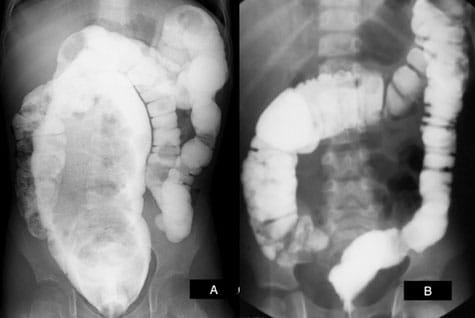Fecal incontinence means your child can’t control their bowel movements. It is more common than many people realize.
For children and teens, soiling and needing to wear a diaper is embarrassing. It can be hard to make friends. Fecal incontinence also can be frustrating and isolating for families.
Why UPMC Children’s?
UPMC Children’s Hospital of Pittsburgh is one of the top pediatric hospitals in the country. Our gastroenterology and GI surgery program ranks among the top 10 in the nation.
The Colorectal Center for Children at UPMC Children’s offers comprehensive support and treatment for fecal incontinence. We understand the complex physical, mental, and emotional challenges it creates for children. Our compassionate experts help them and their family find solutions and relief. They include specialists in surgery, gastroenterology, neurosurgery, psychology, and other fields.
How Do I Know If My Child Has Fecal Incontinence?
Bowel movements are either voluntary or involuntary. Children with true fecal incontinence cannot have voluntary bowel movements when it’s “time to go”.
Is fecal incontinence the same in all children?
No. There are two distinct types of fecal incontinence:
- Fecal incontinence with constipation.
These children can’t feel or hold their stool. Treatment focuses on preventing constipation.
- Fecal incontinence with a tendency toward diarrhea.
These children usually need a small enema, constipating diet, and medicine to manage their bowels. These treatments work together to slow the nerves and muscles (motility) of the colon.
A contrast enema is used to help identify your child’s type of fecal incontinence. Colonic manometry can also be used to better understand the motility of the colon and its contribution to fecal incontinence.

(A) Contrast enema of a patient with fecal incontinence and constipation.
(B) Contrast enema of a patient with fecal incontinence and a tendency to diarrhea.
How can I help my child with fecal incontinence?
We understand the many physical, mental, and emotional challenges children with fecal incontinence may face as they grow and develop. Our compassionate team of experts includes specialists in surgery, gastroenterology, neurosurgery, psychology, and other fields.
While not a cure, bowel management can greatly improve confidence and lifestyle. Treatments may include enemas, laxatives, and diet. Our goal is to help your child learn to empty their bowel and avoid accidents for 24 hours.
Additionally, our Motility and Neurogastroenterology Center is one of only two pediatric programs in Pennsylvania — and only 15 in the nation. Here, specially trained doctors and support staff help children with complex gastrointestinal and bowel problems. Services include the latest in testing and advanced treatments.
Can surgery help my child with fecal incontinence?
Once your child can keep a clean colon, an optional surgery is available. An appendicostomy lets your child or teen receive or self-administer an enema to the colon through the appendix, which is often brought up to their belly button. It is also called a Malone procedure. (Depending on their condition, some children may need a daily enema for the rest of their life).
In this operation, the appendix is connected most commonly to the belly button to create a tiny stoma, or hole. A small catheter is passed through the navel to the colon to deliver an enema. Alternatively, a cecostomy tube placed directly into the cecum (the first portion of the colon) can be used to deliver enemas. This procedure gives many children a greater sense of control and independence.









